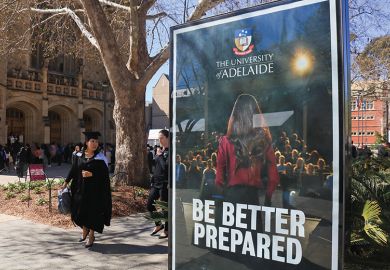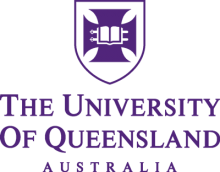Perceptions that the University of Adelaide’s new boss is too close to China stem from a time when the whole of Australia was trying to get closer to China, he said.
Peter Høj, who has been appointed Adelaide vice-chancellor after leading the University of Queensland (UQ) for eight years, arrives with baggage from Beijing – largely because of the five years he served as an unpaid consultant to the headquarters of China’s Confucius Institutes, Hanban.
Professor Høj denied any impropriety in advising the agency, which runs more than a dozen Australian institutes. “Why would it not be in Australia’s interests to have somebody at the governing table?” he said.
“You have to engage to influence. Everything we did at UQ has to been seen through the prism of what was in Australia’s best interests.”
Professor Høj joined Hanban in 2013, a year after the federal government’s Australia in the Asian Century White Paper entreated educational institutions to help in “nurturing deeper and broader relationships” with China and the region. A year later, Chinese president Xi Jinping’s address to a joint sitting of Australia’s parliament coincided with the unveiling of a free trade agreement between the two nations.
Professor Høj said he had told the foreign minister’s office of his work with Hanban, and had been encouraged to continue, at a time when the bilateral relationship was warmer. “As soon as Australia indicated that there was a change in the geopolitical arena, I resigned from Hanban. You can’t judge somebody’s activity against a situation that was prevailing then when it’s not prevailing now,” he said.
Professor Høj officially starts his new role on 8 February, three years to the day since the arrival of predecessor Peter Rathjen, who resigned last year over a sex scandal. The circumstances are not unlike his initiation at Queensland, where predecessor Paul Greenfield had quit over a student admission scandal.
Professor Høj said there was “advantage in having travelled the journey” when taking the helm of a troubled organisation. While some staff would be too absorbed in their research or teaching to worry about last year’s leadership crisis, he said, others would look for reassurance that the institution had “taken note”.
“My approach in situations like this is to use my ears and my mouth in proportion. People are different and you’ve got to have a degree of emotional intelligence. The most important thing is to be able to listen and react differentially to individuals’ needs,” he said.
The new vice-chancellor said he was as surprised as anybody when newspaper reports surfaced last July suggesting that he was favoured to take over at Adelaide. “This notion that I was frontrunner for a job I didn’t know I was going to apply for” may have been floated by former colleagues who wanted a strong hand back, he said.
“I’m not Mr Fix-it, [but] I’ve left places better than I found them. Clearly, it could be part of my résumé that I’m able to move things on when they’ve taken a wrong turn,” Professor Høj said.
Register to continue
Why register?
- Registration is free and only takes a moment
- Once registered, you can read 3 articles a month
- Sign up for our newsletter
Subscribe
Or subscribe for unlimited access to:
- Unlimited access to news, views, insights & reviews
- Digital editions
- Digital access to THE’s university and college rankings analysis
Already registered or a current subscriber?










